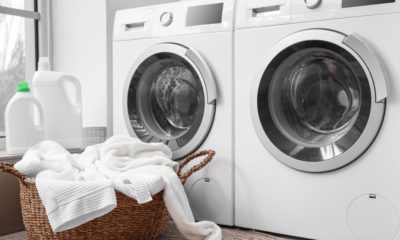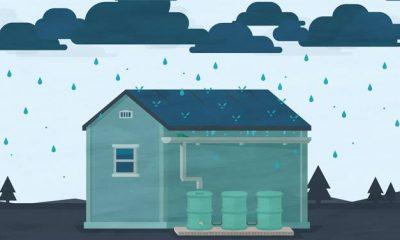Best of Johannesburg
Why Your Prepaid Water Meter Eats Units So Fast and How to Fix It

Why Your Prepaid Water Meter Uses Units So Quickly
If you’ve ever topped up your prepaid water meter and watched the credit disappear far too soon, you’re not imagining it. Across South African homes, especially in cities like Johannesburg and Durban, residents have been reporting the same problem: units that vanish even when no one’s using the taps.
The truth is that most of the time, fast-draining units are caused by leaks you can’t see. From slow toilet cistern drips to underground pipe bursts, even small leaks can quietly eat through your prepaid balance.
What That Flashing Droplet Really Means
Most modern prepaid meters come with built-in leak-detection software. When you see a flashing water droplet or the word “LEAK” on your keypad, it means water is flowing somewhere on your property when it shouldn’t be.
Smart systems such as Waterwatch track your usage over 24 hours. If the meter detects water movement during every single hour, including when the household should be asleep, it automatically flags a possible leak.
A flashing droplet is your meter’s way of saying, “Water is flowing right now.” Ignoring it means your prepaid units will continue to drop until the issue is fixed.
How to Check for a Leak at Home
You don’t need special tools or a plumber to start checking. Follow this quick test:
-
Turn off all water inside and outside the house, including washing machines, dishwashers, and irrigation.
-
Read your meter. Note the number or check the flow indicator, which may be a spinning triangle or small icon.
-
Wait at least an hour. The longer the wait, the more accurate the result.
-
Check again. If the reading or indicator has moved, water is escaping somewhere.
Many prepaid meters also allow you to press a short code, such as #11#, to view how much water is being lost per hour. The reading updates automatically every hour or can be refreshed by pressing the hash key twice.
Where Leaks Usually Hide
-
Toilets: A constantly refilling cistern or a quiet trickle from the flush valve can waste hundreds of litres a day. You can test it by adding a few drops of food colouring to the tank; if the colour appears in the bowl, there’s a leak.
-
Taps: Even a small drip adds up fast. Tighten loose fittings or replace worn washers.
-
Underground pipes: Watch for damp soil, soft ground, or bright green patches on the lawn.
-
Cooling units: If you use evaporative or swamp coolers, check for water stains on the roof or warm air from the vents.
Other Reasons Units May Drop
While leaks are the most common cause, a few other factors can also accelerate unit consumption:
-
Air in the pipes after supply interruptions can make older mechanical meters spin too fast.
-
Faulty or ageing meters can record false readings, especially after five years of use.
-
High-usage appliances like irrigation systems or water features increase consumption more than expected.
-
Unauthorised water use from shared or tampered connections can also drain your credit.
If your property is empty yet units continue to drop, it’s a clear sign that water is flowing where it shouldn’t.
What to Do Once You Find the Problem
-
Fix the leak quickly. Call a qualified plumber if you can’t identify or repair it yourself.
-
Report municipal faults. If the leak is near the meter or beyond your boundary, your municipality must handle it.
-
Request a meter test. If your tests show no leaks but usage remains high, you can ask the council to test the meter. If it’s found faulty, you should be refunded for the testing fee.
-
Secure your meter box. Prevent unauthorised use by keeping it locked when possible.
Municipalities like Johannesburg, eThekwini, and Cape Town all encourage residents to fix internal leaks immediately to conserve water and reduce unnecessary billing.
Why It Matters in 2025
Water scarcity remains a pressing issue across South Africa. Every litre lost through undetected leaks affects not only your pocket but also the broader water system. Prepaid meters were introduced to promote responsible consumption, but they can only do their job if homeowners act when the “LEAK” sign flashes.
As climate patterns shift and urban demand rises, conserving water has become both a personal and civic responsibility. Checking your prepaid meter isn’t just about saving credit; it’s about protecting one of the country’s most precious resources.
Also read: Estimated Meter Readings in South Africa 2025: What They Are and How to Dispute Them
Follow Joburg ETC on Facebook, Twitter, TikT
For more News in Johannesburg, visit joburgetc.com
Featured Image: Utilities Middle East



















